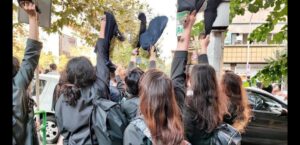International justice for war crimes is often too little and too late for its victims. In the case of Bashar al-Assad, the UN’s Security Council has repeatedly failed to refer the Syrian president and his collaborators to prosecutors at the International Criminal Court (ICC). The council excuses its selective attention to human rights by saying Syria is not a party to the Rome Statute, which created the court, and therefore it cannot be referred there.
This of course is nonsense. This week however, Germany put human rights first by sentencing a former high-ranking Syrian security service officer to life in prison. Anwar Raslan was found guilty of 27 murders as well as sexual assaults, and the torture of at least 4,000 people held at the infamous Al-Khatib prison, also known as Branch 251, in Damascus. With some 50 survivors coming forward, German authorities arrested Raslan in 2019 after he had the audacity to escape the Assad regime and seek asylum in that country.
Defending our borders against war criminals who seek asylum in the West should matter to all human rights activists. German lawyers wisely used the principle of universal jurisdiction to bring Raslan to justice, signalling to perpetrators worldwide that there can be no escape from justice. The UN’s High Commissioner for Human Rights, Michelle Bachelet, hailed the “historic conviction” saying that “this trial cast a much-needed, renewed spotlight on the kinds of sickening torture, cruel and truly inhuman treatment — including abject sexual violence — that countless Syrians were subjected to in detention facilities.”
Bachelet is correct when she professes that “today’s verdict should serve to spur forward all efforts to widen the net of accountability for all perpetrators of the unspeakable crimes that have characterized this brutal conflict.” But what of the many other conflicts raging throughout the world? Last week, on these pages, I brought attention to the plight of the Christian community in such places as Nigeria, where they are murdered and persecuted by the dozens; the genocide of the Uyghur peoples by China; and the incomprehensible subjugation of women in Afghanistan.
We need the UN Human Rights Council to speak louder about a multitude of issues affecting the world today. Among them is the oppression and eradication of Christians in not just Africa but in Asia and Arab countries in the Middle East as well. My Christian friends have persuasively noted that while we speak about racism and intolerance against most other groups, our focus must also include what is possibly the most persecuted religious community on the planet. Silence is a form of complicity and for this reason, I will continue to bring attention to this pressing human rights issue.
In many ways, rising autocracy, nationalism and radicalism force us to press further to promote human rights. We need a counterbalance to the evil and profane. We need to push back the darkness that can easily consume humanity and set us on a destructive path. That’s why The Abraham Global Peace Initiative recently launched The Power of One — an exhibit that showcases such human rights trail blazers as Martin Luther King Jr., Mahatma Gandhi and Mother Teresa. The world needs reference points to showcase good versus evil. We cannot allow a degradation of our conception of human rights and the normalization of crimes against humanity.
We can draw strength and inspiration from such role models as Raoul Wallenberg, the Swiss diplomat who saved thousands of Jewish people by issuing passes to them so they could escape the Nazis. Canada set our nation’s moral compass to a new standard when it recognized Wallenberg as an honorary citizen in 1985 and in 2001 designated Jan. 17 as Raoul Wallenberg Day. The Abraham Global Peace Initiative plans to commemorate this important day with the launch of its Power of One exhibit at Vancouver’s police headquarters and with a live telecast to press upon the public the importance of sustaining and furthering the universality of human rights for all people.
As parents and grandparents, it is our responsibility to leave this world a better place for our children.
National Post




